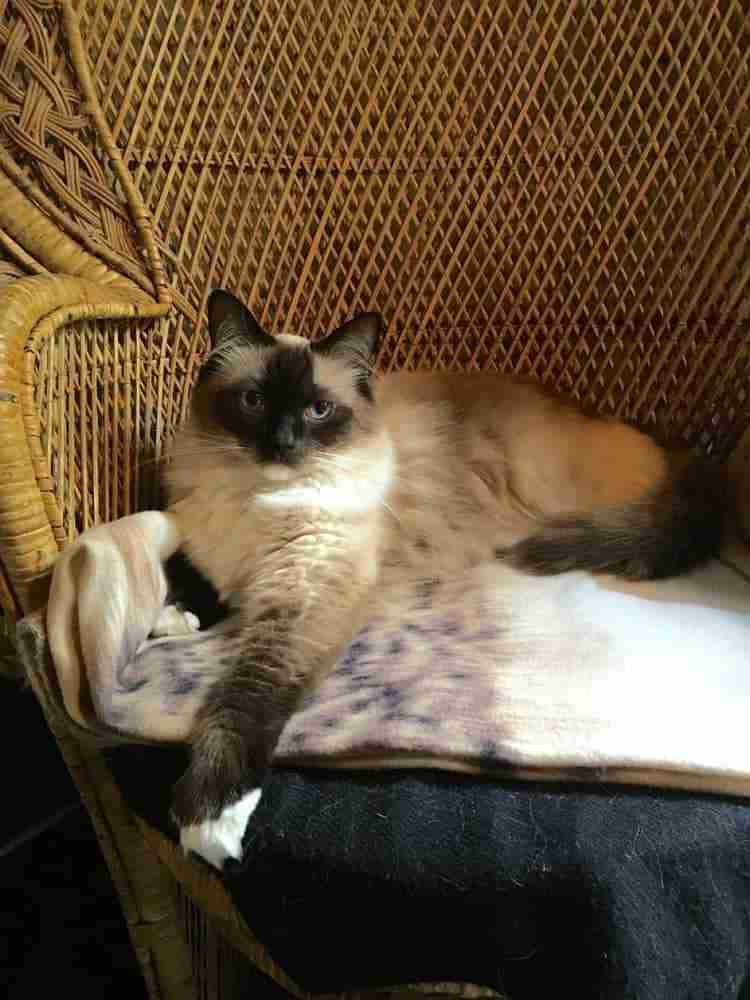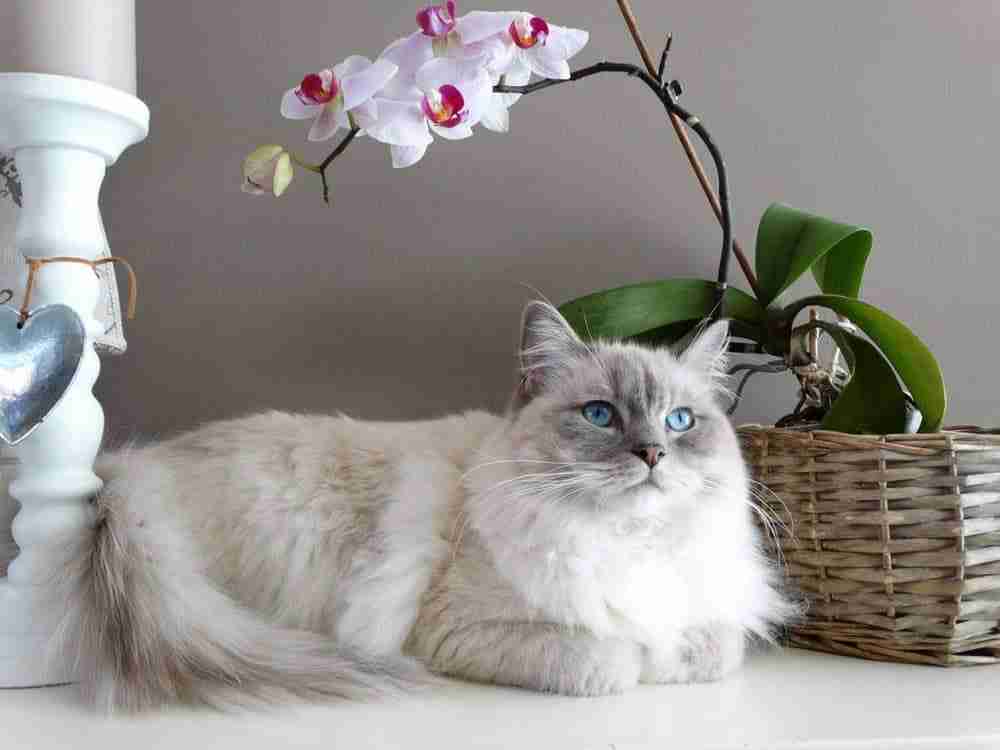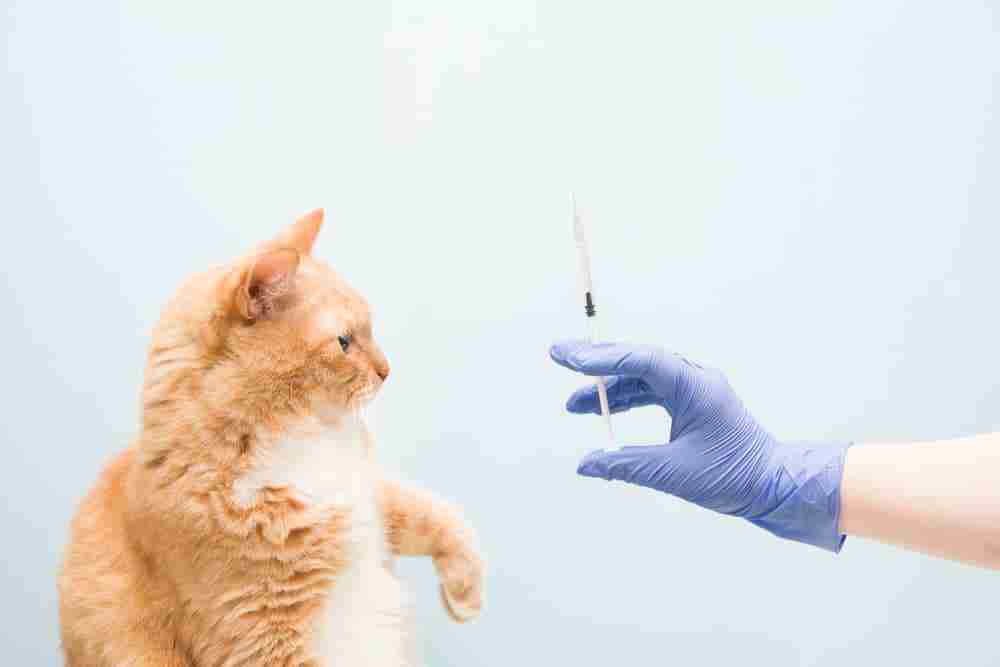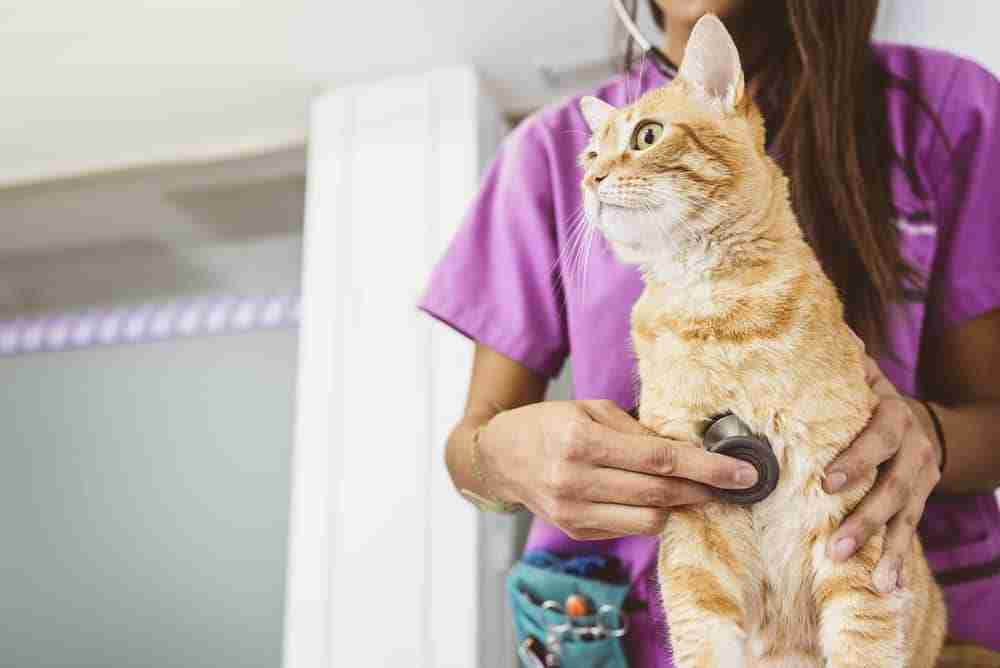Vaccinations are important, but do indoor cats need their shots? Yes, they do. They may come across viruses during vet visits, during cattery stays, when they escape, or just from surfaces.
When talking about your cat’s health, vaccinations are bound to come up. Many new cat owners have questions about feline injections, including the frequency, the importance, and the potential effect that getting jabs might have on their pets.
We all want the best for our cats and making sure that their immune system can ward off common diseases and pests make up a huge part of being a responsible cat owner.
Which vaccinations do cats need? When and why do they need them?
These are just some of the questions that cat owners might have when it comes to the different necessary vaccinations.
Another common question applies to indoor versus outdoor cats. Do indoor cats still need their vaccinations?
Indoor Cats And Health
Let’s discuss indoor cats first.
The term indoor cat refers to any cat that gets raised (or kept) indoors. Cats can adapt just fine to spending most of their time inside with their owners – and to tell the truth, some breeds (like ragdolls) just prefer to stay inside by nature.
Indoor cats tend to have different habits than outdoor cats.
For example, a cat who is used to the indoors might be less experienced when climbing a tree for the first time, and might get stuck. Indoor cats stay closer to their owners for most of the day – but this doesn’t mean they won’t go outside to explore if they saw an opportunity.

Owners should take different measures for their cats’ health if they plan on keeping an indoor cat or breed. Indoor cats prefer more strict feeding times, and will designate certain pieces of furniture or rooms as “theirs” to keep their territory.
Indoor cats need extra care to ensure an adequate diet. Owners of indoor cats should ensure access to clean water (and food) within reach, and make sure their cat has enough distraction and mental stimulation to keep them busy. They might need personal grooming, and might need more daily time with their owner.
It’s not difficult to keep an indoor cat, but it takes specific responsibilities.
Do Indoor Cats Need Shots?
The quick answer to this question is yes.
All cats require their vaccinations and boosters, usually while they are around six to eight weeks old.
Feline vaccinations protect your cat against a range of conditions and diseases to which any cat might be exposed during its lifetime. These inoculations protect them, other neighborhood pets, and owners from the potential of encountering these conditions.
The term “shots” covers several different diseases, including tick bite fever and rabies.
There’s no guarantee that an indoor cat won’t be exposed to the conditions they require vaccinations for.
Do you know what your cat is doing every second of the day? Can you track every microbe and pest that might cross your pet’s path during their lifetime? For all pet owners, the answer is a clear no.
At the end of the day some viruses are airborne, at some interval your cat might escape, being indoors your cat will develop no natural immunity, at some point you may wish to place them in a kennel/cattery, they may come across infected cats on vet visits/stays or you may decide to take them on walks. Simply put, you can’t guarantee they won’t encounter a problem at some point down the line.
Indoor cats still require their vaccinations – just like all cats do.

The Importance Of Feline Inoculations
Feline shots covers a common range of conditions and diseases. Rabies, tick bite fever, and feline aids are some of the things covered by the average round of vaccinations that veterinarians advise cats to get.
Cat owners don’t have to be able to list all the conditions in order to know that vaccinations are vital for their pet’s health.
Indoor cats can spend just as much time walking around (and meeting other critters!) as older cats do during their lifetime. If you skip their vaccinations, you’re taking the risk of exposing the entire neighborhood to ill health!
What Vaccines Are Necessary For Indoor Cats?
Feline inoculations should only be attempted by a qualified and professional veterinarian.
Even though your cat might not enjoy the idea of traveling, it’s a good idea to make a vet’s appointment as soon as your kittens have hit six to eight weeks old.
Initial vaccinations cover basic diseases which are common in cats. All of these are conditions owners would prefer their cats never get – and that’s why injections are one of the most important things you can do for the lifelong health of your pet.
Expect your cat to get vaccinations for feline panleukopenia virus (FPV), feline herpesvirus (FHV-1, cat flu), feline calicivirus (FCV, cat flu), feline leukemia virus (FeLV), rabies, chlamydophila felis, and bordetella bronchiseptica.
When Should Cats Get Their Jabs?
Veterinarians advise that cats get their vaccinations at six to eight weeks old.
Younger than this is not advised, since a young kitten’s natural immune system might not be able to handle the effect of vaccination yet. Cats older than six weeks are fine.
Not sure how old your kitten is? Speak to your veterinarian. An appointment can help you to establish an approximate age based on physical factors like the development of their teeth and current weight.
If you have taken in an older cat and cannot establish their age or whether they’ve had treatment before, start with a vet’s appointment. Again, a vet can help, and re-administer their injections if they deem it to be necessary.
What Are Booster Shots?
Younger kittens require more than just a single, initial round of vaccinations. Boosters will be required a couple of weeks after a cat has had their first vaccination round – and these boosters are very, very important.
Booster injections ensure that the first round of vaccinations work as they are supposed to.
Don’t skip boosters! This can stop vaccinations from doing their job, and might mean that they are completely ineffective.
When taking a cat for its first round of inoculations, the vet will usually send a reminder (or mark this in their records booklet). Owners should remember too, just in case.

Can Vaccinations Make Cats Sick?
Vaccinations work because they boost natural immunity against a condition by exposing the body to an inactive portion of the virus. It’s the same way human vaccinations work to protect us against common conditions.
Some cats might show mild adverse effects for a few minutes to hours after receiving their vaccinations. Lethargy, sensitivity, and nausea are some of the effects you might notice in your cat after they have had their shots. This is their own immune system ramping up a defensive response.
Usually, this goes away within a few minutes to hours.
It doesn’t happen to all cats, but it’s considered normal when it does.
If symptoms are more severe (or last for longer), your cat might be having an allergic reaction instead, or be affected by another health condition. See your vet as soon as possible in the event of an emergency.
Are Feline Shots Expensive?
Feline vaccinations aren’t expensive – and usually won’t add much cost on top of a basic vet’s appointment. If you cannot afford to see a private vet, helplines and vaccination drives can be a huge help. Feline health is an important part of any neighborhood ecosystem, and initiatives like these can assist where you need it.
Why Vaccination Records Are Important Too
Always ask your veterinarian to provide a vaccination booklet for your cat. This record says when they received their shots, and by which vet. Even though most people might never glance at a vaccination booklet again, this information might become important should you ever need to travel with your cats – and yes, it might be requested in some situations.
